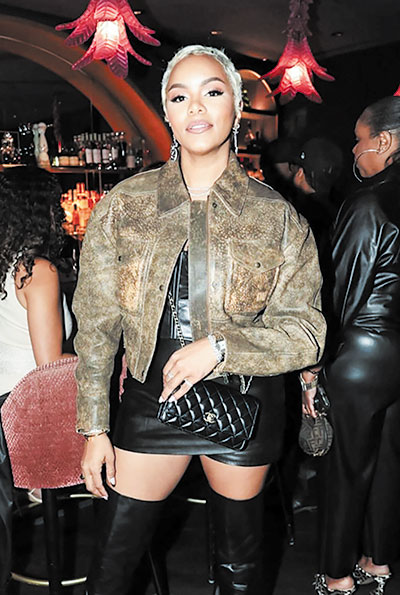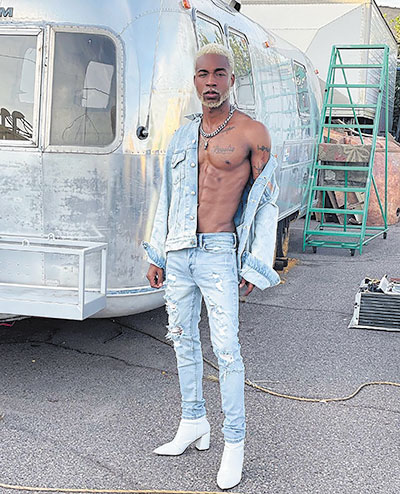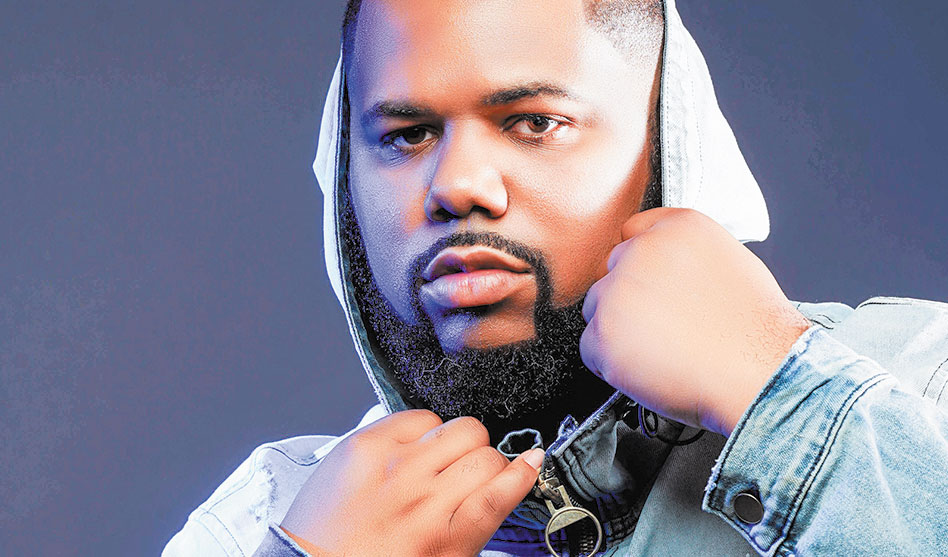Ian Haddock
Ian Haddock’s organization aims to center Black queer people
JENNY BLOCK | Contributing Writer
jennyblock@icloud.com
HOUSTON, Tx. — an Haddock is creating a new normal, and it’s Black and queer AF. Literally.
“The heart of what we do is center Black queer people to eliminate barriers and create new norms,” Haddock said. “We do that through direct services, advocacy, capacity building, training and technical assistance.”
Haddock is talking about the impossible that he made possible: The Normal Anomaly Initiative, the city’s premiere Black LGBTQ organization. And from March 14-17 the Initiative is hosting its Black Queer Advancement Festival Celebration with the theme “Homecoming.” The highlight of the weekend will be the Third Annual Music Festival on March 16, from 4 p.m.-2 a.m. at Warehouse Live Midtown.
Former Destiny’s Child group member LeToya Luckett is headlining with Black queer artists Sevndeep, Damez, JeRonelle, Thot Squad, Martell Lacey and TazDaRealist rounding out the event. An afterparty will follow with Talameshia, Charlie Xile and, from Atlanta, Anatomy X.
The Normal Anomaly Initiative Inc. opened Houston’s first Black LGBTQ+ space in March 2021, and on the organization’s third anniversary, on BQAF weekend, it will open Houston’s only standalone space for Black LGBTQ+ persons in Houston’s Historic Third Ward.
Featured on The Jennifer Hudson Show and Lil Nas X’s Baby Registry, the Normal Anomaly Initiative has hosted multiple events that reach more than 3,000 people annually.

LeToya Luckett
Their Project Liberate — a cohort of 19 Black and/or LGBTQ social enterprisers — offers paid internships to produce this year’s festival. There are talks to expand regionally through HIV Prevention Trials Network Study 096: Building Equity Through Advocacy to Memphis, Atlanta, Montgomery, Dallas and South Florida. Haddock recently sat down with Dallas Voice’s Jenny Block to talk about the Initiative and BQAF.
Dallas Voice: How did Normal Anomaly come to be? Ian Haddock: We started Normal Anomaly to normalize the anomalies in this world, which happened to be the Black LGBT community, because in the LGBT space and in the Black space, we were normally there, you see us, but our issues are anomalies. They’re abnormal. They’re weird. They’re not a part of the normal culture. So, I wanted to start something and found something that would impact those lives in a more positive way.
Do people come to Normal Anomaly on their own or do you go out and say, “Hey, we’re here to help you”? That has been the biggest blessing with really having a background in media and being a creative first. We started out as a digital storytelling organization before we started doing all this new work. And so, to have connections with media, have connections with elected officials and things like that has really been helpful.
How many people do you serve? In 2022, we were able to see over 3,000 people virtually or in person, and I’m sure that doubled. We are still having to get our name out here. But the fortunate and unfortunate part is in our region — in Houston, across Texas and in the southern United States, which is where we are focusing now — there are just not a lot of Black queer-led organizations specifically that focus on the Black queer community. So, we’ve gotten a lot of attention.
One of the things that I’m most proud about in the last three months or so is that we were featured on The Jennifer Hudson Show. So, people have been seeing us and that feels great, not just for me as the founder, but for a small team of people who work day in and day out and who really believe in the mission.
So, how did a music festival start? Where did that come from? So, two things: One, we have a program that we feel is super innovative. It’s currently being developed to expand to five cities in the South. That program is called Project Liberate, and it’s a social enterprising intervention.
The idea is to create an ecosystem of economic and social power with Black and/or LGBT communities. We’ve helped to launch 48 businesses over the next three years through that program. And as a part of that program, we wanted to figure out, how do we launch their businesses to the most people in the community. You do an event.
And so that is where the first year of the music festival came to be. We allowed our liberators, which is what we call them, to be our exclusive vendors for the music festival and launch the business in space.
The other piece is there is just not enough spaces, I would argue, that celebrate our joy and our creativity. And when we think about an event that can bring people together of all cultures, of all races and ethnicities, of all sexualities and all genders, there is nothing more powerful than music. Music is the great convener, if you would.
So we said, if we’re going to do an event, why not do a music festival that uplifts and platforms Black LGBT artists, and it has just grown and grown and grown.

Sevndeep
And that is part of the Black Queer Advancement Festival? Yes. That festival is throughout the weekend, and that has different iterations, and the music festival is a part of it. It’s a tongue-in-cheek way to uplift community because the acronym is Black Queer AF.
Was that a happy accident or was that purposeful? It was very purposeful. We wanted it to say Black Queer AF, but we had to get funded, and we wanted it to be marketable. The words Advancement Festival came after because, really, it’s about being Black and queer as fuck, which is what we all want. I think ultimately that’s what we all want to be.
Do you currently serve the Dallas community in any way? We have a peer supporter program based in Dallas. So we have a team that spends part of their time in Dallas. It’s all centered around what Black gay men need, whether that’s community, a place to go hang out, mental health resources or whatever. They just contact us and we have a list of people and a coalition of people and organizations that can help us support them to make them feel better and have better outcomes.
Also, we are very, very connected to the organizations in Dallas, and we’re hoping that people in Dallas find value in this. We’re still a fairly new event, a fairly new weekend, and so we do lean on the power that Dallas Southern Pride has and the expertise they have in curating and creating spaces for the Black LGBT community. So, this is intentional with being connected to Dallas because we realize that there are a lot of things that we can share.
What’s your wish for the future of Normal Anomaly? I would love to have a traveling tour of Black queer artists headlined by Black queer people and their allies. I would love to go from city to city where we wouldn’t have to just bring everybody here to Houston. I would love to go from city to city and just create a space for Black queer people to have a platform.
I know this seems like a non-traditional way to start bringing people together, but again, music is the great convener. I will continue to say that over and over, but aside from that, it’s about prioritizing the needs of the people. And we do that through our work on a daily basis.
But this particular event, it’s about creating a space that they just want to come to. They just want to feel seen in. And everybody’s invited, but they are centered in that title, right? Black Queer AF — it’s centered right in the title, but everybody’s invited.
There’s a cute little shirt that I had a couple years ago and it said, centering people is not pie. Me taking something, me giving something to them does not take anything away from you. Oftentimes I think we miss that, and we like to have the oppression Olympics. Women are marginalized. That’s not a question. This is not about who is more oppressed or all of the things. It’s about who needs to be uplifted the most in this moment.
And I have to check myself. I have privilege. I have male-presenting privilege and somewhat masculine privilege. It’s about who needs the censoring, who needs the empowerment, who needs the uplifting and where does the privilege lie?
Often times that’s all it takes for you to make change and enact a different policy. And that is really the goal of us centering Black, queer people, creating a space for us to be in, creating a space to allow us to see that we’re more alike than different.

